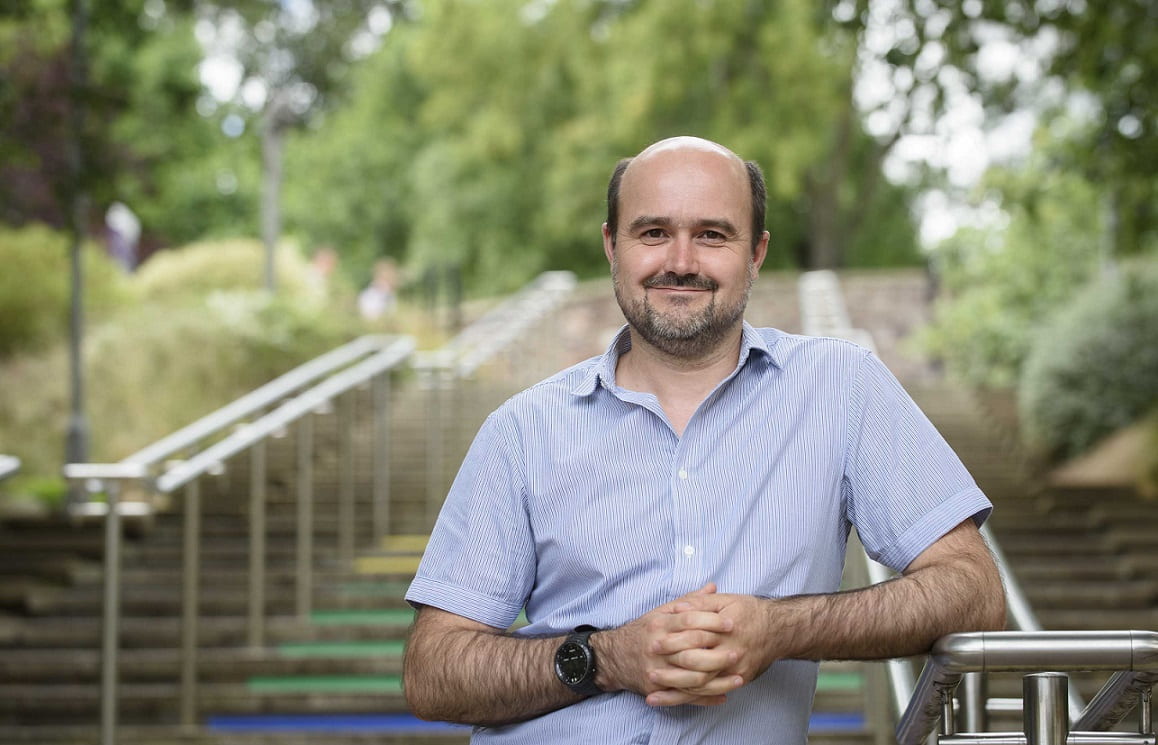 Matthew Avison (BSc 1994, PhD 1998), Professor of Molecular Bacteriology and Director of the University of Bristol’s Anti-Microbial Resistance (AMR) Research Network, demonstrates the world-leading research underway, and how a legacy gift has been used to help prevent one of the greatest threats to global health.
Matthew Avison (BSc 1994, PhD 1998), Professor of Molecular Bacteriology and Director of the University of Bristol’s Anti-Microbial Resistance (AMR) Research Network, demonstrates the world-leading research underway, and how a legacy gift has been used to help prevent one of the greatest threats to global health.
My role over the last couple of years has been to work collaboratively across the University to develop the Bristol AMR Research Network and to lead a community to tackle this global crisis. Originally this work started as a collaboration between the different Science schools and has now grown to include important work in other varied disciplines, including the Social Sciences, Law and the Arts.
Antimicrobials (antibiotics) have underpinned global healthcare for decades. Their widespread use, however, has led to AMR which means they are increasingly ineffective in fighting infections. It is a complex and global problem. The University of Bristol’s AMR Network is an interdisciplinary research consortium designed to help fight the challenges posed by AMR, which severely threatens human quality of life and life expectancy across the world.
AMR involves many different factors – technological issues, environmental issues, poverty issues, regulatory issues – which are all underpinned by human behaviours and their social and cultural drivers. For this reason, the Bristol AMR Network works across all faculties of the University. We have physicists and engineers working together to develop machines to identify whether bacteria are resistant to antibiotics or not, we have biologists providing them with the materials to test their inventions, and we have social scientists to explain how this might influence the practices of the people who are using antibiotics in the first place. We have human geographers, medical anthropologists, chemists, medics, vets, people working in agriculture and experts in stakeholder engagement. AMR is an enormous problem that requires a multifaceted approach and funding this research is an ongoing, essential requirement.
With support from Ivan Way’s legacy gift, we were able to unlock matched funding from the Medical Research Foundation and support two AMR PhD studentships at Bristol this year. This legacy bequest was transformative, allowing us to recruit the very best people for two four-year research roles. This is now our second cohort of AMR PhD students, who are also involved in a wider national training programme led by Bristol AMR where 150 students from across the UK come to Bristol for an annual week-long residential course, enabling them to tackle AMR by working across disciplines.
It is Ivan Way’s legacy bequest that has enabled us to build on the success of this PhD programme, continue to support ground-breaking research, and train the AMR researchers of the future.
One of the PhD students supported by Ivan Way’s bequest who starts in September is a molecular microbiologist and computer scientist who will develop
methods to help clinicians better use antibiotics in hospital treatment. The other is a vet who will be researching how we can reduce AMR on dairy farms. This legacy gift not only presents a life-changing opportunity for these two students, but will also contribute to our understanding of one of the world’s biggest global health crises. It represents a significant impact for AMR research, for the wider interdisciplinary AMR Network, for the PhD students and those involved in the training programme and, indeed, for world health.
Legacy gifts to the University of Bristol help our students thrive, support ground-breaking research and ensure that the University remains at the forefront of academic excellence. Many of Bristol’s achievements throughout our history have been supported by gifts in Wills from our generous alumni and friends.
